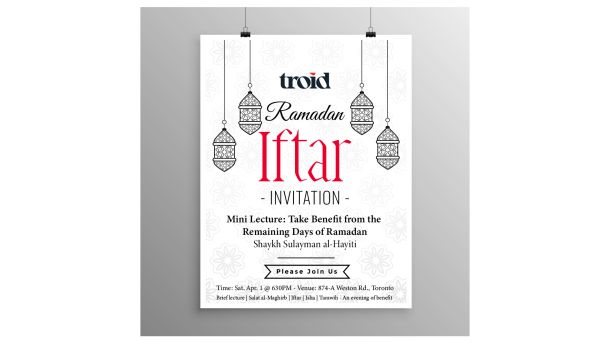News Archive
Mar 29, 2023
Reviving A Forgotten Sunnah in Ramaḍān: Communal Saḥūr
Fasting in Ramaḍān is one of the greatest forms of worship, so much so that it was made a pillar of Islām. Consequently, Allāh legislated copious laws to ensure that we fast correctly, and not only were the early generations keen to implement these laws, but they were also keen to transmit them, as we will soon see. However, as time elapsed, many Muslims forgot about some of the more intricate laws of fasting this blessed month.
Although having ifṭār collectively is a common practice, the sunnah of consuming saḥūr[1] collectively is definitely a forgotten Prophetic tradition.
Zayd ibn Thābi…
Mar 26, 2023
How to Balance Seeking Out Means with Tawakkul
Refuting the View that Carrying out Action in Fulfilment of a Goal is not from Islām
Addressing the Confusion Centred Around the Companions of Al-Ṣiffah
Refuting the Claim that Carrying out Actions in the Fulfilment of a Goal is a Sign of Weakness
Carrying Out Action in the Pursuit of a Goal Does Not Invalidate Tawfīq from Allāh
The True Definition of Tawākkul
Allāh says:
وَمَا أَرْسَلْنَا قَبْلَكَ مِنَ الْمُرْسَلِينَ إِلَّا إِنَّهُمْ لَيَأْكُلُونَ الطَّعَامَ وَيَمْشُونَ فِي الْأَسْوَاقِ ۗ وَجَعَلْنَا بَعْضَكُمْ لِبَعْضٍ فِتْنَةً أَتَصْبِرُونَ ۗ وَكَانَ رَبُّكَ بَصِيرًا
‘And We did not sen…








